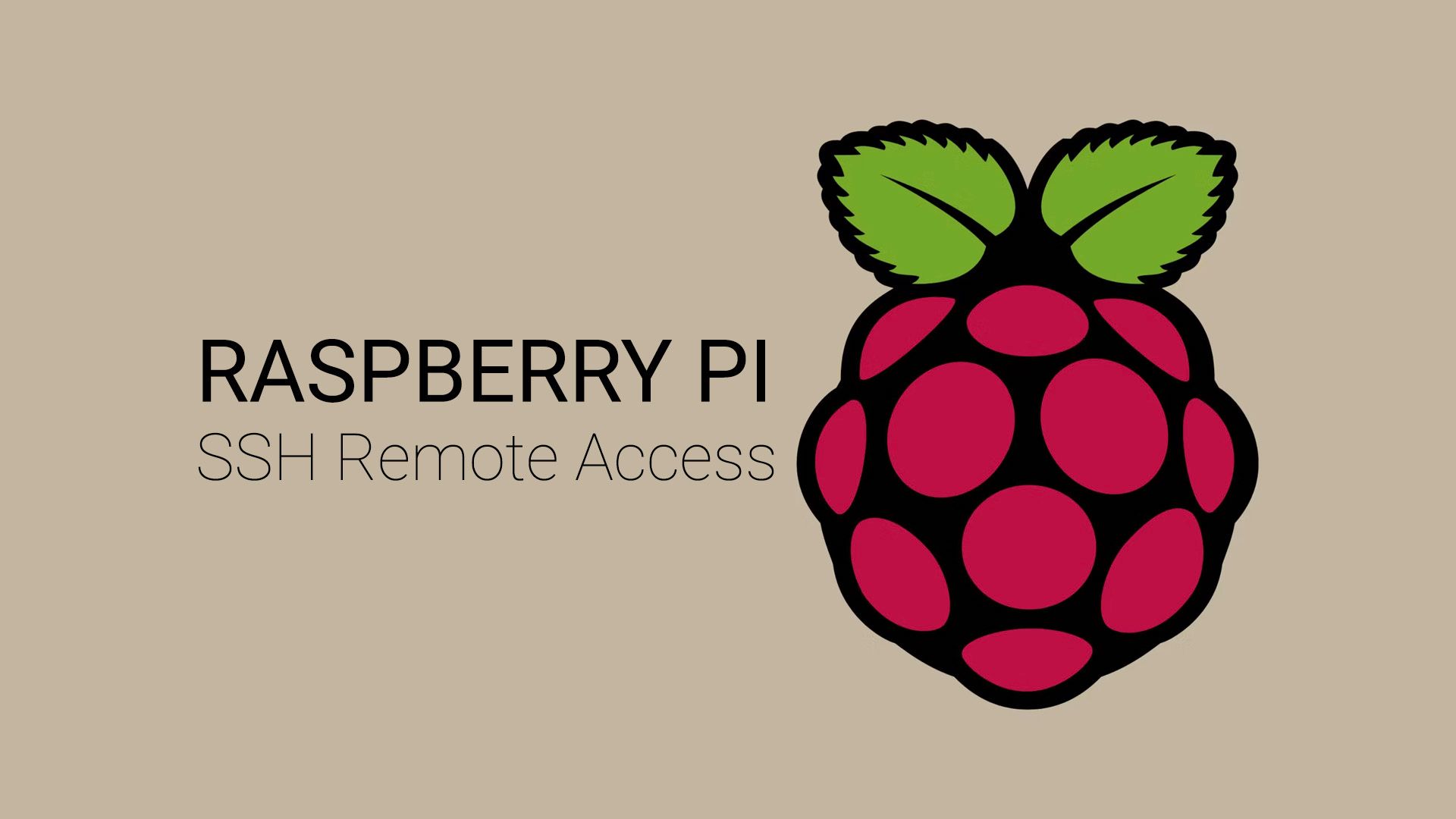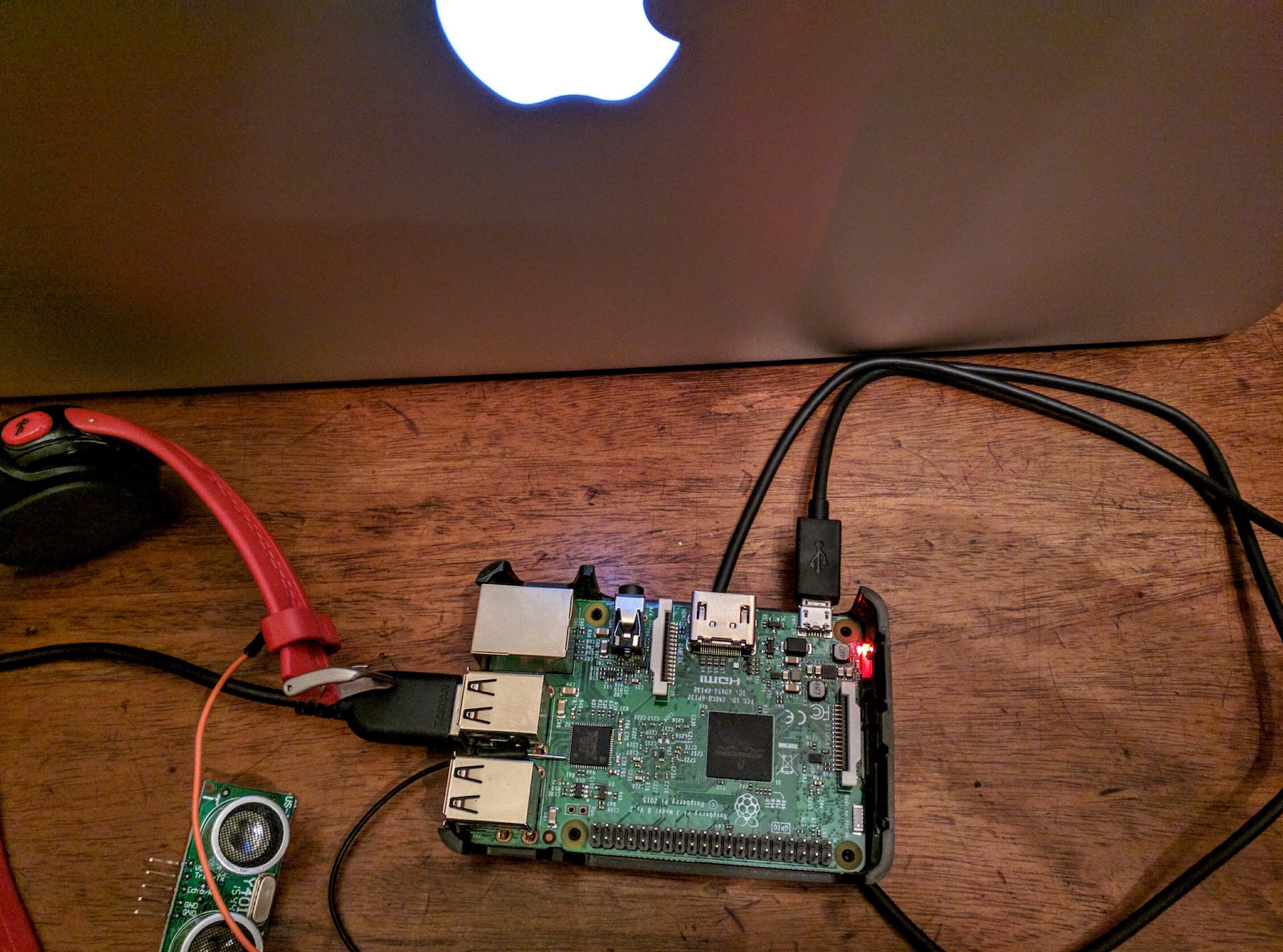Hey there, tech enthusiasts! If you're diving headfirst into the world of IoT (Internet of Things) and looking to set up a secure and reliable connection with your Raspberry Pi, you're in the right place. Today, we're going to explore the best remote IoT platform that integrates seamlessly with SSH keys for your Raspberry Pi. This isn't just another tech article; it's your ultimate guide to mastering IoT connectivity. So, buckle up, and let's get started!
Let's be honest, setting up a remote IoT platform can feel like solving a puzzle—especially when you're trying to integrate SSH keys into the mix. But don't worry, we've got your back. In this article, we'll break down everything you need to know about the best remote IoT platforms for Raspberry Pi and how to use SSH keys to secure your connections. Whether you're a beginner or a seasoned pro, this guide will make your life easier.
Now, why should you care? Because the best remote IoT platform can revolutionize the way you interact with your devices. With SSH keys in play, you can ensure that your Raspberry Pi remains secure, no matter where you are. So, let's dive deeper into the nitty-gritty details and uncover the magic of IoT and Raspberry Pi!
- Meet Chuck Schumers Wife The Woman Behind The Senator
- Unveiling The Charismatic Outlander Character Jamie A Deep Dive Into His World
Table of Contents
- What is a RemoteIoT Platform?
- Raspberry Pi: The Basics
- Why SSH Keys Matter
- Best RemoteIoT Platforms for Raspberry Pi
- Setting Up SSH Keys on Raspberry Pi
- Comparison of Top Platforms
- Security Tips for Your IoT Setup
- Real-World Examples of RemoteIoT Usage
- Troubleshooting Common Issues
- Wrapping It All Up
What is a RemoteIoT Platform?
Alright, let's start with the basics. A remote IoT platform is essentially a system that allows you to connect, monitor, and control your IoT devices from anywhere in the world. Think of it as the brain behind your smart home or industrial automation setup. With a remote IoT platform, you can access your Raspberry Pi remotely, manage data, and even automate tasks without being physically present.
Now, here's the kicker—when you pair this with SSH keys, you're not just getting connectivity; you're getting security. SSH keys act as a digital lock and key, ensuring that only authorized users can access your Raspberry Pi. It's like having a personal bodyguard for your device.
- Don Johnson Melanie Griffith A Hollywood Love Story That Stood The Test Of Time
- Fred Gwynne Movies And Tv Shows The Iconic Journey Of A Legendary Actor
Why Should You Care About RemoteIoT?
Let me tell you something—remote IoT platforms are becoming a necessity, not a luxury. Whether you're running a small business or managing a large-scale operation, having the ability to control your devices remotely can save you time, money, and a whole lot of headaches. Plus, with the rise of smart homes and connected devices, the demand for secure and reliable remote access is only going to grow.
Raspberry Pi: The Basics
Before we dive deeper, let's talk about the star of the show: the Raspberry Pi. This tiny yet powerful device has become a favorite among hobbyists, developers, and professionals alike. Why? Because it's affordable, versatile, and packed with features that make it perfect for IoT projects.
Here’s a quick rundown of what makes the Raspberry Pi so awesome:
- Compact size—fits in the palm of your hand!
- Multiple GPIO pins for connecting sensors and other devices.
- Supports a variety of operating systems, including Linux-based distributions.
- Perfect for both beginners and advanced users.
But here's the thing—the Raspberry Pi is only as good as the platform you use to manage it. That's where remote IoT platforms come in.
Why SSH Keys Matter
SSH keys are like the secret handshake of the tech world. They provide an extra layer of security that traditional passwords simply can't match. Instead of relying on a string of characters that could potentially be guessed or cracked, SSH keys use cryptographic algorithms to ensure that only authorized users can access your device.
Here's how it works:
- You generate a public and private key pair.
- The public key is placed on the Raspberry Pi, while the private key stays with you.
- When you try to connect, the Raspberry Pi verifies your identity using the private key.
It's like having a digital fingerprint that proves you're who you say you are. And let's face it—in today's world, security is everything.
Best RemoteIoT Platforms for Raspberry Pi
Now, let's talk about the main event—the best remote IoT platforms for Raspberry Pi. There are plenty of options out there, but not all of them are created equal. Here are some of the top contenders:
1. Thinger.io
Thinger.io is a cloud-based IoT platform that makes it easy to connect and manage your Raspberry Pi. It offers features like real-time data visualization, device management, and secure connections through SSH. Plus, it's beginner-friendly, so even if you're new to IoT, you can get up and running in no time.
2. Blynk
Blynk is another great option for Raspberry Pi users. It allows you to create custom dashboards and control your devices from your smartphone. With Blynk, you can set up SSH keys to ensure that your connections remain secure, no matter where you are.
3. Losant
Losant is an enterprise-grade IoT platform that offers robust features for managing large-scale IoT deployments. It supports SSH connections and provides tools for data analysis, automation, and more. If you're looking for a platform that can grow with your needs, Losant is definitely worth considering.
Setting Up SSH Keys on Raspberry Pi
Alright, now that you know why SSH keys are important, let's talk about how to set them up on your Raspberry Pi. Don't worry—it's easier than it sounds!
Here's a step-by-step guide:
- Generate an SSH key pair on your local machine using the
ssh-keygencommand. - Copy the public key to your Raspberry Pi using the
ssh-copy-idcommand. - Disable password authentication in the SSH config file to ensure that only SSH key-based authentication is allowed.
- Test your connection to make sure everything is working as expected.
Voilà! You're now ready to securely connect to your Raspberry Pi from anywhere in the world.
Comparison of Top Platforms
Now that you know the top remote IoT platforms for Raspberry Pi, let's compare them side by side:
| Platform | Key Features | Pros | Cons |
|---|---|---|---|
| Thinger.io | Real-time data visualization, device management, SSH support | Beginner-friendly, easy to set up | Limited free tier options |
| Blynk | Custom dashboards, mobile app integration, SSH support | Great for remote control | May require additional hardware |
| Losant | Enterprise-grade features, data analysis, SSH support | Scalable, powerful | Steep learning curve |
Each platform has its own strengths and weaknesses, so it's important to choose the one that best fits your needs.
Security Tips for Your IoT Setup
Security is key (pun intended) when it comes to IoT. Here are a few tips to help you keep your Raspberry Pi and remote IoT platform secure:
- Always use SSH keys instead of passwords.
- Regularly update your software and firmware to protect against vulnerabilities.
- Use a firewall to control incoming and outgoing traffic.
- Limit access to your Raspberry Pi to trusted devices and networks.
Remember, security isn't a one-time thing—it's an ongoing process. Stay vigilant and keep your devices protected!
Real-World Examples of RemoteIoT Usage
Let's take a look at some real-world examples of how remote IoT platforms are being used with Raspberry Pi:
1. Smart Home Automation
Imagine being able to control your lights, thermostat, and security system from your phone, no matter where you are. With a remote IoT platform and Raspberry Pi, you can turn your house into a smart home in no time.
2. Industrial Automation
In the world of manufacturing, remote IoT platforms are being used to monitor and control equipment in real-time. This helps reduce downtime and improve efficiency, saving companies both time and money.
3. Environmental Monitoring
Raspberry Pi and remote IoT platforms are also being used to monitor environmental conditions like temperature, humidity, and air quality. This data can be used to make informed decisions about climate change and resource management.
Troubleshooting Common Issues
Even the best-laid plans can go awry sometimes. Here are a few common issues you might encounter when setting up a remote IoT platform with SSH keys on your Raspberry Pi:
- Connection Issues: Make sure your SSH keys are correctly configured and that your Raspberry Pi is connected to the internet.
- Authentication Errors: Double-check that your public key is correctly placed on the Raspberry Pi and that password authentication is disabled.
- Platform Compatibility: Ensure that your chosen platform supports SSH connections and is compatible with your Raspberry Pi model.
If all else fails, don't hesitate to reach out to the platform's support team or consult the documentation for troubleshooting tips.
Wrapping It All Up
And there you have it—the ultimate guide to the best remote IoT platform for Raspberry Pi with SSH keys. Whether you're building a smart home, automating industrial processes, or monitoring the environment, the right platform can make all the difference.
Remember, security should always be your top priority. By using SSH keys and following best practices, you can ensure that your Raspberry Pi remains safe and secure. So, what are you waiting for? Get out there and start exploring the world of IoT!
Before you go, don't forget to leave a comment and share your thoughts on this article. And if you found it helpful, be sure to check out some of our other articles on tech and IoT. Happy building, and see you in the next one!



Detail Author:
- Name : George Trantow
- Username : alfredo81
- Email : reuben.schiller@hill.org
- Birthdate : 1975-07-15
- Address : 416 Madison Plains Port Joyceshire, AZ 91623-9759
- Phone : 810.647.7775
- Company : Paucek, Kautzer and Hills
- Job : Bookkeeper
- Bio : Illum est occaecati quaerat unde dolorem. Optio necessitatibus rerum necessitatibus corporis quaerat harum assumenda sapiente. Quaerat vel alias dolorem possimus.
Socials
linkedin:
- url : https://linkedin.com/in/fionazieme
- username : fionazieme
- bio : In facilis voluptatum culpa incidunt.
- followers : 358
- following : 2440
instagram:
- url : https://instagram.com/fiona_dev
- username : fiona_dev
- bio : Ullam rem saepe incidunt fugit dicta. Qui ullam provident et.
- followers : 1111
- following : 670